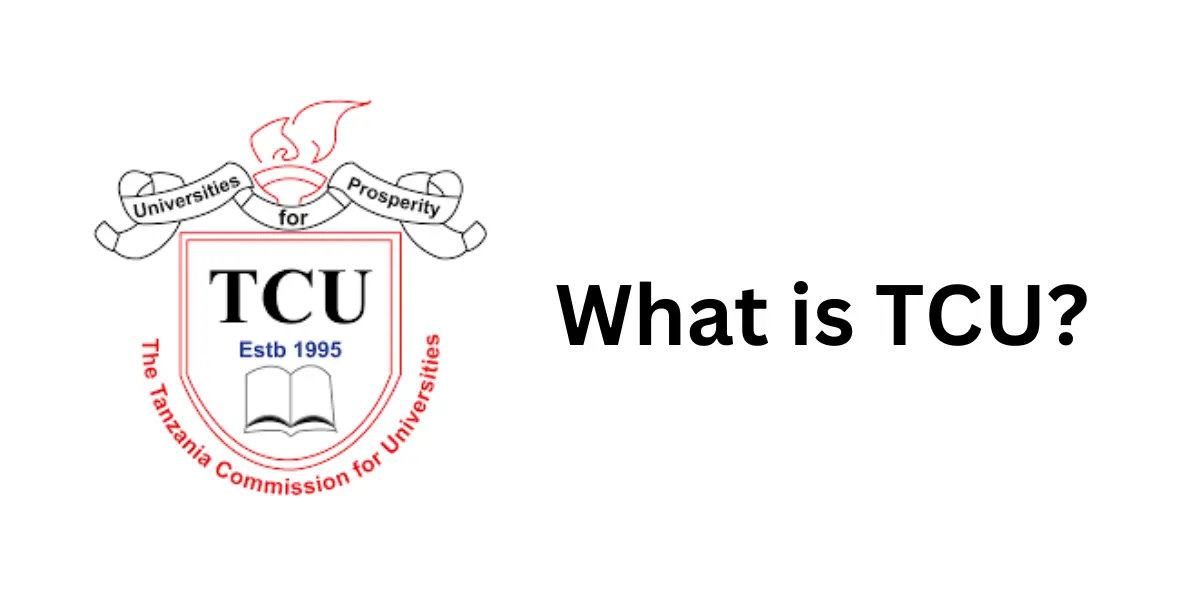The Tanzania Commission for Universities (TCU) is the statutory and regulatory body established in 2005 by the Tanzanian Government to oversee university education in the United Republic of Tanzania.
The Tanzania Commission for Universities (TCU) is a corporate body established on July 1, 2005, under the Universities Act, Cap 346 of the Laws of Tanzania.
TCU is mandated to recognise, approve, register, and accredit Universities operating in Tanzania, and local or foreign university-level programs are offered by registered higher education institutions.
It also coordinates the proper functioning of all universities in Tanzania to foster a harmonised higher education system.
TCU succeeded the then-Higher Education Accreditation Council (HEAC), which was established in 1995 under the Education Act, 1995, with a legal mandate to regulate the establishment and subsequent accreditation of private university institutions in the country.
Being limited only to private universities, such a mandate was considered unfavourable for the promotion of a viable public-private partnership in higher education as stipulated in the National Higher Education Policy of 1999.
Therefore, such circumstances prompted the government to establish a harmonised higher education system in the country, which led to the establishment of the TCU.
However, to ensure that such a harmonious higher education system does not compromise institutional peculiarities and autonomy, each university is vested with the legal right to operate under its charter.
The mandates and core functions of the Commission are provided for under section 5 (1) of the Universities Act, Cap. 346 of the Laws of Tanzania.
Recommended Articles
Table of Contents
The Functions of TCU

The functions of TCU can be clustered into three major areas:
- Regulatory Function: Conduct regular and impromptu periodic evaluations of universities, their systems, and programs to regulate the quality assurance systems at new and established universities. In the process, institutions are registered and accredited to operate in Tanzania. Also, TCU validates programs to ensure their credibility and evaluates university awards from local and foreign institutions for use in Tanzania.
- Advisory Function: To advise the government and the public on matters related to university education in Tanzania and international issues about higher education, including advice on program and policy formulation and other best practices.
- Supportive Function: To ensure the orderly conduct of university operations and management adherence to set standards and benchmarks by providing support to universities in terms of coordinating the admission of students, offering training and other sensitisation interventions in key areas such as quality assurance, university leadership and management, entrepreneurial skills, gender mainstreaming and fundraising and resources mobilisation.
Also Read: HESLB: What is it? Its Functions and All You Need to Know
TCU: Important Links
- 2024/2025 Bachelor’s Degree Admission Guidebook for Holders of Secondary School Qualifications
- 2024/2025 Bachelor’s Degree Admission Guidebook for Ordinary Diploma/Equivalent Applicants
- Bachelor’s Degree Admissions Almanac for Higher Education Institutions 2024/25 Admission Cycle
- Universities Registered in Tanzania
- Programme Management System (PMS)
- Official TCU Website: https://www.tcu.go.tz/
- Academic Programmes Offered in University Institutions
- Registered Overseas Student Recruitment Agencies
TCU: Wrapping Up
As discussed above, the Tanzania Commission for Universities is a government body responsible for regulating higher education in Tanzania.
It was established in 2005 under the Universities Act 2005.
The TCU’s main functions include: recognising, approving, and accrediting universities operating in Tanzania, ensuring the quality of university education in Tanzania, and advising the government on matters related to higher education.
The Tanzania Commission for Universities is headquartered in Dodoma, Tanzania.
For more information, please visit the official website: https://www.tcu.go.tz/
That’s all.
If you liked this article, please join WebsiteForEngineers on Telegram, and you can also find us on Pinterest, Twitter, and Facebook.


